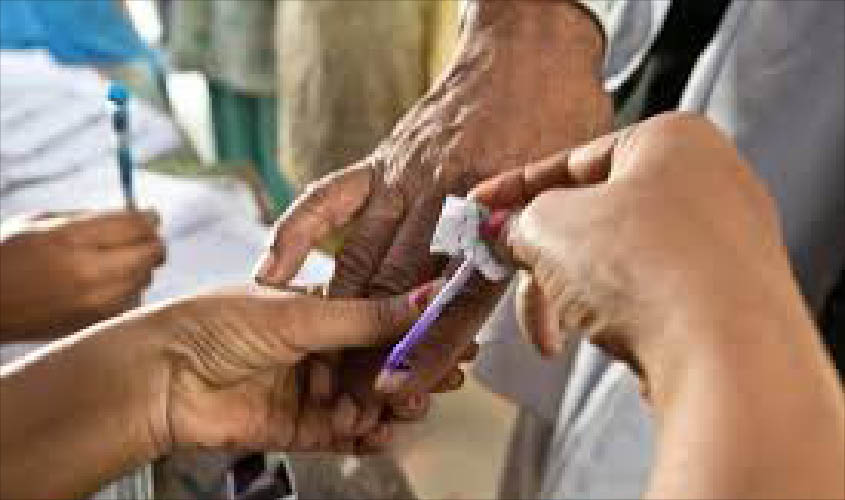Exempting voters from having forefinger inked would require an amendment to Section 49(K) of the Conduct of Election Rules, 1961. Authority to change rules lies with the Ministry of Law & Justice.
Voters from as many as 13 Assembly constituencies of Chhattisgarh’s Left-wing extremist (LWE) affected areas don’t want indelible ink applied on their fingers after exercising their franchise, as the Maoists in such areas have warned villagers that if anyone is found with ink marks of casting votes, his/her fingers will be chopped off.
A threat to boycott eelctions has been issued by the Maoists in Chhattisgarh. According to sources, villagers from LWE areas, including Dantewada, Sukma, Bijapur, Bastar Kondagaon, Narayanpur, Kanker and Rajnandgaon, have requested district election officers (collectors) for exemption from indelible ink being applied on their fingers after casting votes.
A source from the state said: “The Red cadres have been visiting many villages in their stronghold Bastar since last one month, putting up posters and asking people to boycott the elections.”
Left-wing extremists have a presence in 13 Assembly constituencies of the state’s 90 seats.
Of the five states going to Assembly elections this year, Chhattisgarh is the only one where elections will be held in two phases for security reasons.
The first phase of polling on 12 November will cover 18 constituencies, including 13 Maoist-hit seats.
In the past, there has been a similar demand from administrative offices in insurgency or militancy-prone areas, LWE-hit states and the Northeast, to drop indelible ink mark for the sake of safety of the voters, but the Election Commission has never paid any attention to such a demand.
Sources close to the EC said that though the EC is concerned about the security of voters in LWE areas, it is likely to turn down voters’ demands to do away with applying indelible ink on fingers.
The EC has made up its mind to deploy multi-layerered security to avert any violence, but won’t accept the demand to drop applying ink as that will violate the rules in place that prescribe the use of indelible link after the casting of votes.
Exempting voters from having their forefinger inked would require an amendment to Section 49(K) of the Conduct of Election Rules, 1961.
The authority to change the rules lies with the Ministry of Law & Justice, according to legal experts.
A source close to the EC said: “Taking a serious note of the Maoist threat, the EC has demanded that the Central government deploy additional security forces to prevent a situation like 2013 when the Maoists had attacked and killed several Congress leaders in the state.”
On the promise of anonymity, a block level officer told The Sunday Guardian: “We have received applications signed by lakhs of people wanting to avoid the use of indelible ink on their fingers after they vote. They have highlighted their fear after the threat issued by the Maoists in LWE affected areas. We have forwarded the applications to the district collector’s office which has further forwarded the applications to the EC. Any decision on the issue will be taken only by the EC and not the local administration.”
“Some villagers have said that they are even ready to brave the Maoists’ threats to cast their votes if indelible ink is not applied on their fingers,” the same official said.
The indelible ink, electoral stain or phosphoric ink is a semi-permanent ink or dye that is applied to the forefinger (usually) of voters during elections in order to prevent electoral fraud such as double voting.
It is an effective method for countries where the identification of voters is complex.
The EC has also launched a campaign to increase the voting percentage in Chhattisgarh’s LWE affected areas.
As part of the campaign, volunteers are visiting each house in the interior areas and extending a traditional invite of giving betel nut and rice-turmeric to people.

